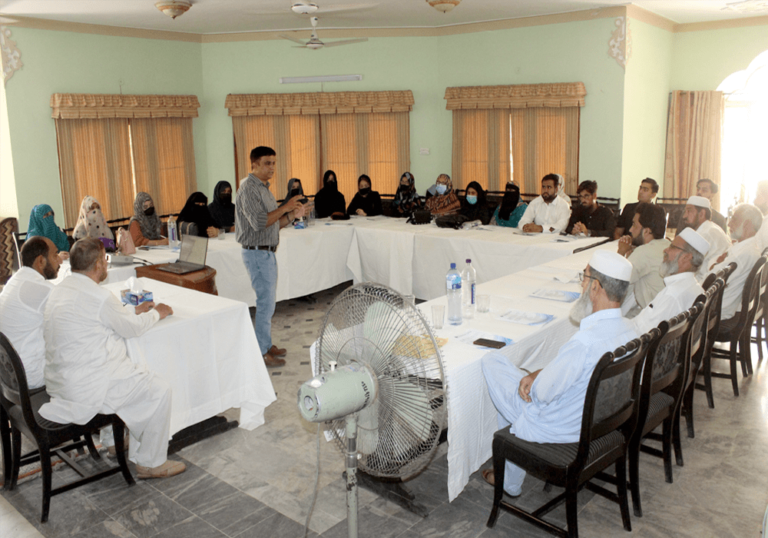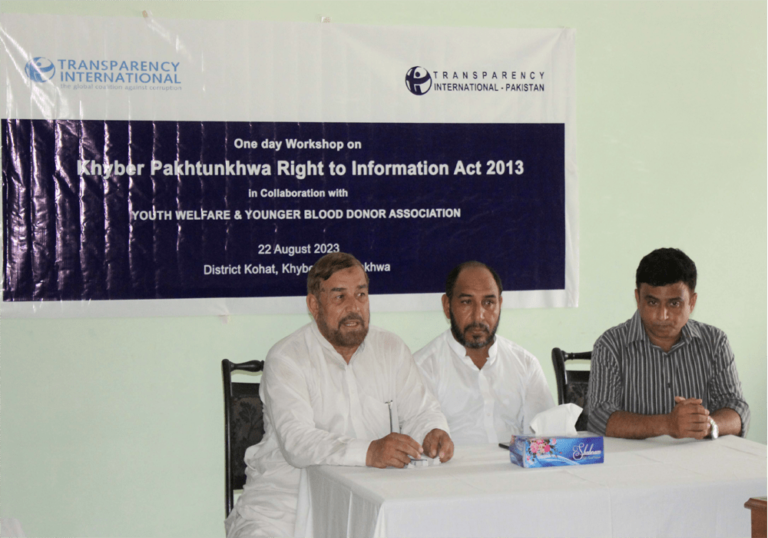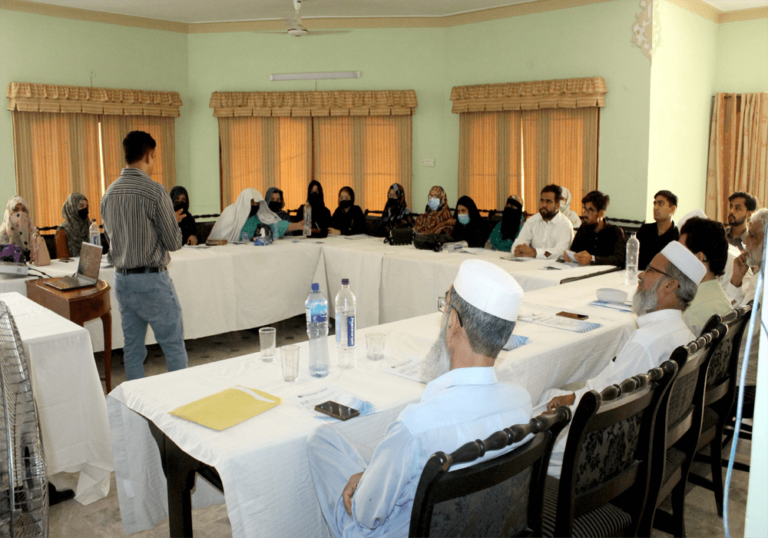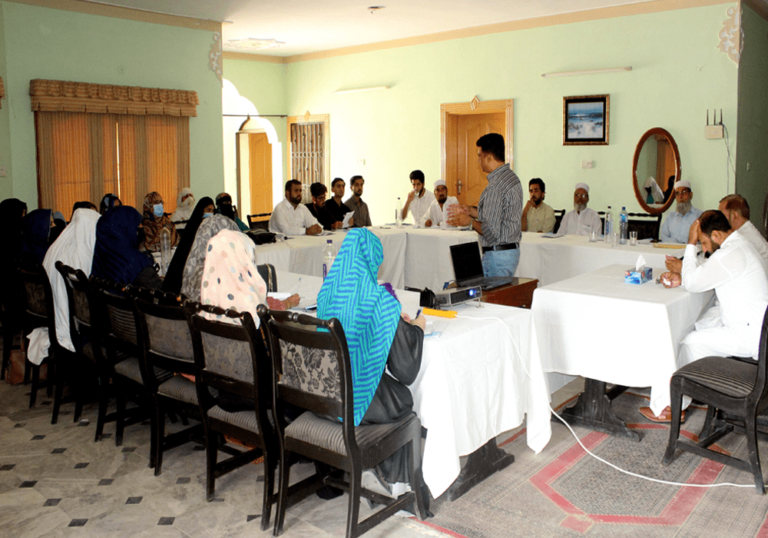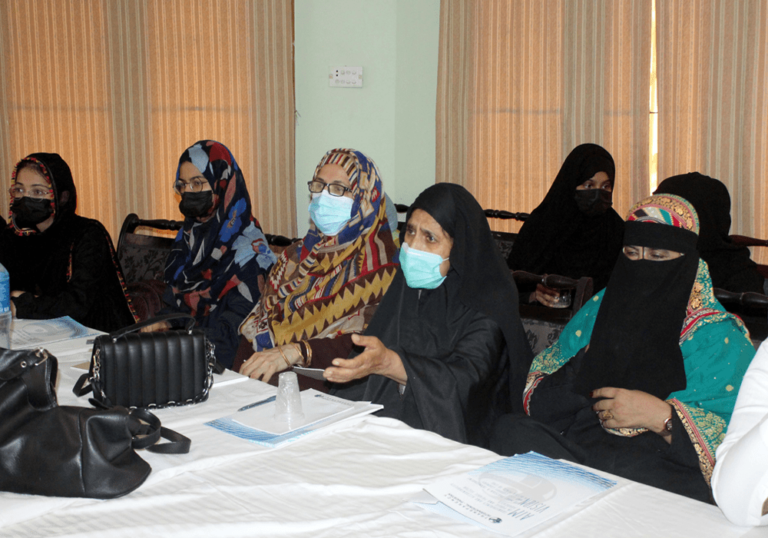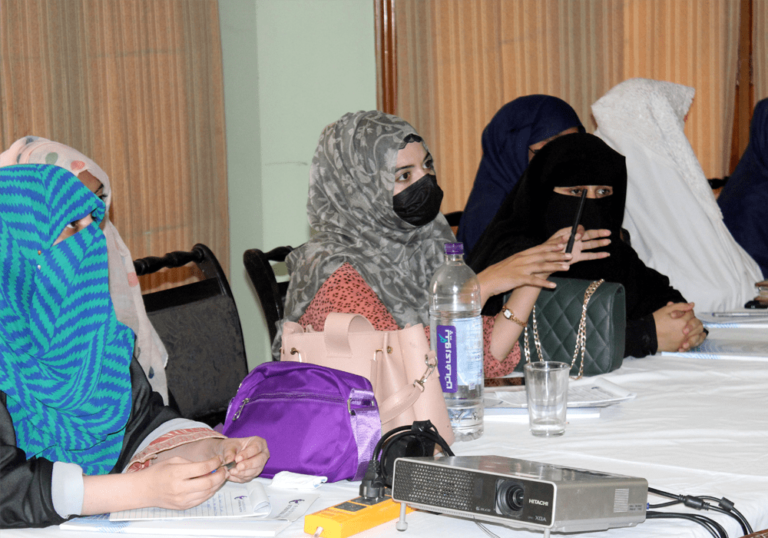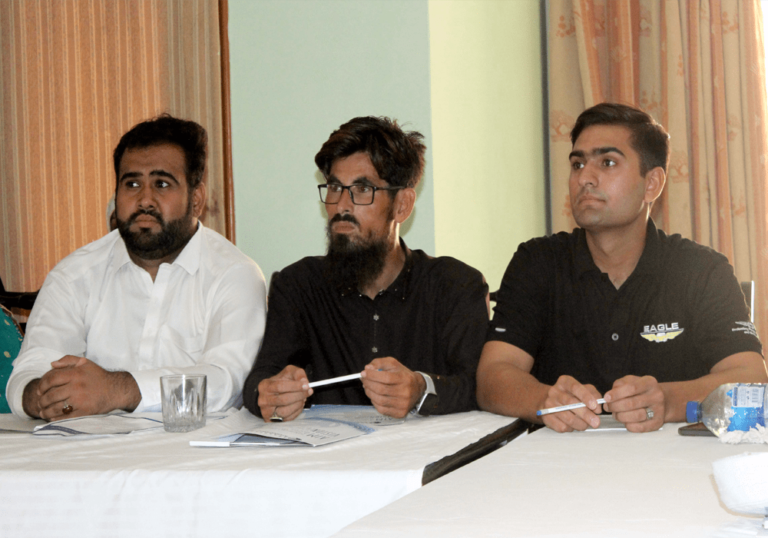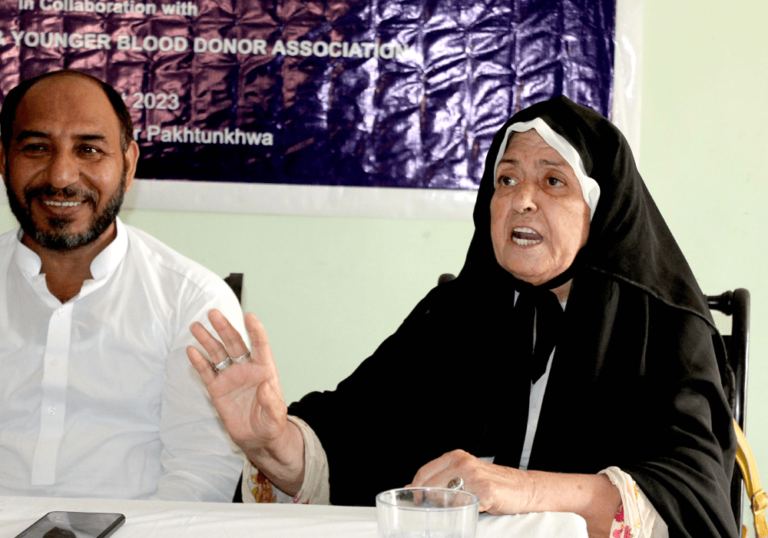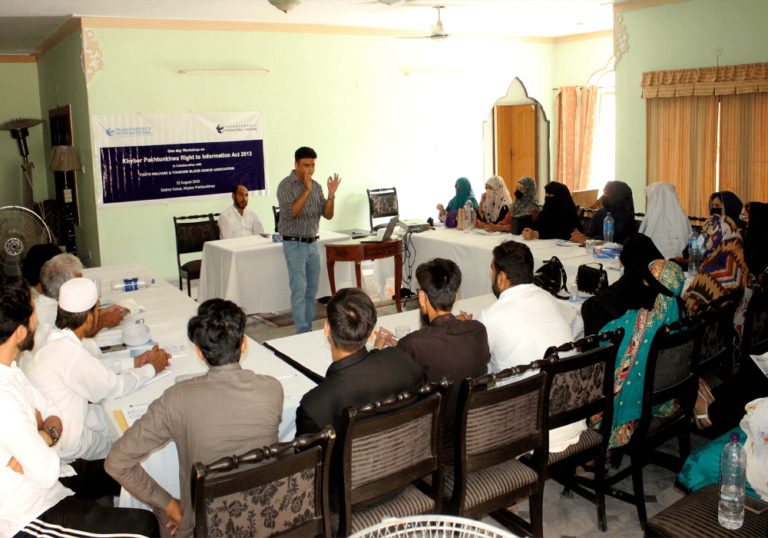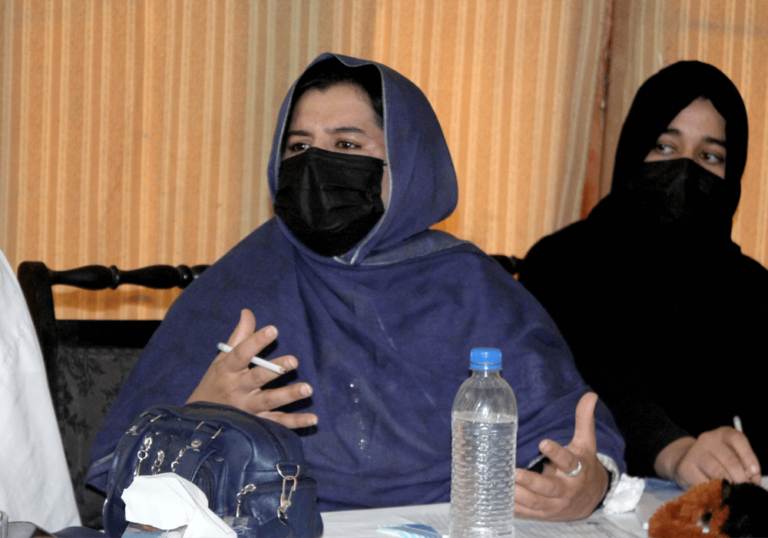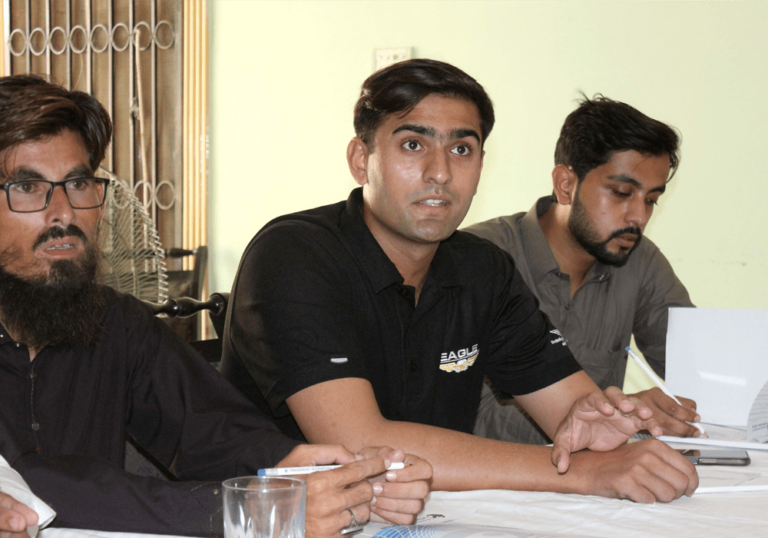- Home
- Workshop on Khyber Pakhtunkhwa Right to Information Act 2013District Kohat
Workshop on Khyber Pakhtunkhwa Right to Information Act 2013District Kohat
Workshop on Khyber Pakhtunkhwa Right to Information Act 2013
District Kohat
Date: 22 August 2023
Transparency International Pakistan, in collaboration with the Youth Welfare and Younger Blood Donor Association, hosted a one-day workshop in District Kohat focused on Khyber Pakhtunkhwa Right to Information Act 2013. The event garnered a diverse assembly of attendees, including representatives from civil society organizations, activists, educators, students, and concerned citizens hailing from Kohat and its neighboring regions. A total of 36 participants, comprising 20 males and 16 females, demonstrated keen interest in comprehending the significance of the RTI Act in advancing transparency and accountability within governance. Mr. Ashfaque Ahmed, a representative from Transparency International Pakistan, undertook the role of the workshop’s facilitator.
The session commenced at 10:00 AM with participant registration, followed by welcoming remarks from Mr. Jhanzaib Jani of the Youth Welfare and Younger Blood Donor Association. Mr. Jani provided an introductory overview of the Khyber Pakhtunkhwa Right to Information Act 2013, emphasizing its pivotal role in enhancing transparency in governance. He elucidated how the Right to Information (RTI) Act empowers citizens by granting them access to information held by public authorities, thereby enabling them to stay informed about government policies, decisions, and actions. This, in turn, empowers individuals to actively participate in the democratic process, hold public authorities accountable, and make well-informed decisions.
Mr. Ashfaque Ahmed then explained the work carried out by Transparency International Pakistan and delved into a detailed explanation of the RTI Act and its key provisions. He mentioned that the Act incorporates crucial provisions to facilitate the implementation of the right to information. These provisions outline the procedure for submitting information requests, delineate the responsibilities of public bodies in providing information, and establish guidelines for the dissemination of information. Mr. Ahmed also illustrated on what constitutes public bodies, what types of information can be sought, exemptions to the Act, and the obligations of public bodies. He emphasized that citizens can submit information requests and expect responses within a stipulated timeframe of 14 working days.
Furthermore, Mr. Ahmed highlighted the responsibilities of public bodies, including maintaining records, appointing public information officers, and facilitating the proactive disclosure of information. He also shed light on the role of the Khyber Pakhtunkhwa Information Commission, an independent and autonomous entity entrusted with ensuring compliance, dispute resolution, and the promotion of the right to information.
Subsequently, Mr. Jhanzaib Jani discussed the persistence and patience required to obtain information from public bodies, highlighting the crucial role of civil society in this endeavor. An interactive exercise followed, where participants documented specific problems and issues prevalent in their respective areas.
After the workshop, a question and answer (Q&A) session provided a platform for trainers to address participant inquiries and clarify any ambiguities. The trainers ensured that participants’ questions were comprehensively answered, and any uncertainties were resolved.
In the concluding segment, Mr. Jhanzaib and Mr. Ashfaque thanked participants who attended the session. Following this, lunch was provided, offering an opportunity for participants to connect and further discuss the key takeaways from the workshop.


